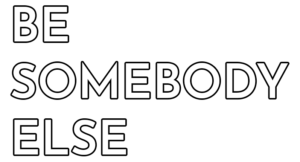Asking someone to list the pros and cons they associate with doing something is a good way to help them make a decision. It’s a method I learned while I was running therapy groups for people with addiction and dependency problems. In those groups ‘doing the next right thing’, was crucial. Everybody in the group spoke not only about bad decisions concerning drinking, drug-taking, gambling and so on but in other areas of their lives – every area.
These days I still do pros and cons lists with anybody who’s interested. They’re about more than making a balanced decision. They tell me, and they can tell you, what you think you need in life and how you go about getting it. These things may need adjusting. Try doing one with somebody else and see what you both make of it.
Pros and cons v1
The lists we used to produce in those addiction groups were pragmatic. For example: ‘do I tell my partner I used heroin again last night?’ Taking into the pros and cons of doing so might involve this partner’s own heroin habit, the volatility of a relationship, and a someone’s likelihood of using heroin again if confessing to using went badly. That might kill them. Looking at what telling the partner might achieve or cause (the pros and cons were, of course, always projections, even if they were supposed to be as far as possible based on experience) was a very different matter from judging whether withholding or deferring telling the truth is sometimes a good idea.
A ‘pro’ should reveal something that a person might seem to benefit from. Finding a fifty-pound note lying on the pavement might involve a ‘pro’. Someone will then have enough money to buy more than they can usually afford. Whether or not keeping the money and doing so is a ‘good or bad’ thing is another matter. Good and bad needs to be thought about after pros and cons. Pros and cons reveal opportunities, pragmatic ones; good and bad decide what to do with those opportunities.
Doing the whole exercise in the third person, asking some to think of themselves as a ‘she’, ‘they’, or ‘he’ can be even more helpful. Doing so distances someone from feeling their way through the task.
Doing anything in writing
As soon as I mention ‘the third person’ I start to think about how much of my practice owes itself to my experiments in writing (and maybe more so music, but that’s another matter). Maybe it would be useful to say some more about my experiences in writing. Writing these things here, discussing a simple task, noticing its effects, doing something with it, rather than ‘thinking about’ (getting theoretical in a certain sense) owes much to a particular group of people. What I do is always about noticing effects and their intensity.
Using the third person found its way into the work after I saw how some individuals felt all wrong about getting basic things that they clearly needed; or determinedly right about getting things they really didn’t need. At the time I was also living as a writer and journalist.
I’d taught for a while at Dartington College of Arts as part of their ‘performance writing’ provision and had become used to experimenting with the effect of different forms of writing. All of my work continues to benefit from those first experiments and then from the many other ways of thinking about writing that Sarah Wood and her friends and colleagues, like Forbes Morlock and Graham Allen, or Nick Royle, introduced me to.
Through them I came to read Derrida, Cixous and many others and went back to reading Freud seriously – and eventually found my way to Fred Moten. What I’d absorbed from the writers I had met and interviewed while I was working as a journalist, like Christine Brook Rose or Paweł Huelle began to make a different kind of sense. A course that Sarah Wood developed while she endured working at the University of Kent, The Unknown, radically re-directed my thinking after I found myself teaching on it. I found my own life getting unstuck.
Early life effects
As I have written elsewhere, your mind encourages you to make unhelpful choices based on how you’ve established ways of getting what you need in the past.
After doing pros and cons groups for several years I realised that I could see in the lists of pros and cons people were making reflections of the dynamics they described in their early lives – or which had taken root after major traumatic events such as deaths or accidents later in their lives. Those kinds of events seem to create new patterns people follow to get what they need, or more exaggerated ones of patterns that had been present more subtly beforehand. Traumatic events do this: they lend force to the effects of earlier, less marked, sometimes repetitively induced negative experiences. Ones that conflict with a person getting what they need.
Pros and cons v2
 A list might, as happened on one occasion, show very reasonable pros and cons concerning someone’s tendency to prioritise things.
A list might, as happened on one occasion, show very reasonable pros and cons concerning someone’s tendency to prioritise things.
On the face of it prioritising things is a hands-down good idea. But what if a tendency to prioritise matters is something a person has come to do in order to juggle competing demands on them when they were very young and the way in which they prioritise things has some unacknowledged drawbacks?
The form of prioritising described in these pros and cons seems aimed at making life feel predictable, and for that predictability to be focused on everybody being happy and knowing what everyone is doing.
The pros and cons list shown here was produced by somebody who had a very demanding job, an equally demanding personal life, and whose early life involved regularly being left in charge of three siblings and a grandparent suffering from the debilitating effects of a stroke while their single parent worked very long hours.
Like I said to this person, their early life left them in many ways expert at caring for other people – but what about them? Prioritising events was crucial given the way this individual attempted to balance their life … but ‘balancing their life’ left them frustrated, they told me. They wanted to be more spontaneous. ‘Nothing ever changes’, they said. This wasn’t surprising. Their pros and cons list described the effects of prioritisation as a way of keeping things the same.
Their priorities for prioritising needed to include more of what they required in order to thrive. Variety, for example: something achievable by letting other people take responsibility for prioritising things by being more generally aware of what everybody in a group (at home, the family and work, the office team) needed. In order for this to happen my client had to think very hard about how controlling they were being.
Coda: a super-objective
This way of thinking about things leads us to recognise something like what the theatre director Constantin Stanislavski called a ‘super-objective’. That is, the thing a character in a play wants more than anything else in the world. Focusing on this thing, this emotionally driven-thing, is a crude but nonetheless useful beginning point in understanding the compromises someone has made in order to try and get on in life.
Footnote: Minor objectives
Stanislavski also wrote about ‘minor objectives’. I agree with him that these all contribute towards the main objective of a play. How could they not? For a writer or an actor to consider ‘how’ they do this, though, as he suggests, seems to be asking too much. We’re back to ‘tremendous horses’ again.
Writing tends to happen rather than get made. In this spirit it’s worth mentioning something else that inevitably happens when somebody creates a pros and cons list. A ‘thing’ will inevitably crop up as either a pro or a con that takes the form of something like ‘money’ or ‘security’. When this happens, look at what underlies it. What does this thing do to a particular person? How does it affect them emotionally. The answer to these questions will give you a true sense of where someone is coming from, and where they are most likely heading.

